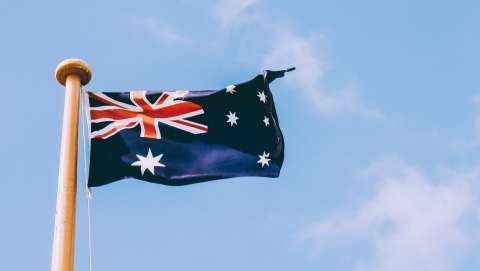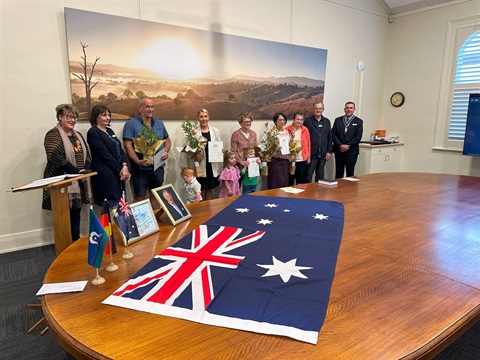Taylor Swift is not only a music icon, but a cultural and economic phenomenon of the 21st century.
She’s in the middle of the highest-grossing music tour in history; she’s won 14 Grammy Awards; she holds the record for the most albums to debut at number one consecutively (beating Elvis Presley) and has the record for the most number one albums by a woman in history.
She’s also used her fame to address political and social issues, like LGBTQ+ rights and voter registration in the US.
It’s hard to think of a single artist that has had more profound implications on so many facets of contemporary life – from gender and fandom to economics, popular culture to politics.
As we write, speculation swirls around whether Taylor Swift will again endorse President Joe Biden in the upcoming US presidential election – with Donald Trump’s camp reportedly preparing a “holy war” against her.
Regardless, it highlights how the modern line between celebrity and activist is becoming increasingly blurred.
More and more, celebrities are lending their voices to socio-political issues, prompting questions about how they use their immense platforms to raise awareness and co-create social value alongside their audiences.
To understand this phenomenon, it is crucial to recognise that celebrities are entities beyond just entertainers.
Public relations and management research has proposed the idea of “social value co-creation,” where businesses collaborate with stakeholders – including communities, non-profits and consumers – to generate shared benefits beyond mere profit.
WHEN FANS JOIN THE CONVERSATION
The dynamics between corporations and stakeholders can be complex and often marked by power imbalances. However, the relationship between celebrities and fans is arguably more symmetrical, making it a more genuine and collaborative co-creation process.
Celebrities and fans can work together to address social issues, enriching each other’s lives in the process.
As public relations researcher – Dr Brandi Watkins from Virginia Tech – suggests, when celebrities engage with audiences on social media, they are not just delivering a message; they are inviting fans to join the conversation, share experiences and contribute to collective social value.
Take Taylor Swift’s journey as an example.
Her documentary Miss Americana captures her growth from an apolitical pop star to a vocal advocate on a number of social and political rights – including those of the LGBTQ+ community.
LINK
She cited her original inspiration for speaking out in an interview with Vogue:
“Maybe a year or two ago, Todrick [Hall] and I are in the car, and he asked me, ‘What would you do if your son was gay?'” she says. “The fact that he had to ask me… shocked me and made me realise that I had not made my position clear enough or loud enough,” she says.
“If he was thinking that, I can’t imagine what my fans in the LGBTQ community might be thinking,” she goes on. “It was kind of devastating to realise that I hadn’t been publicly clear about that.”
By speaking out, Swift opened a dialogue with her fans – one where many resonated with her message. This sparked countless fan-driven initiatives, from voter registration drives to social media campaigns, demonstrating the co-creative potential of celebrity advocacy.
To understand this phenomenon, we need to look through the lens of engagement theory. This theory proposes that effective communication fosters relationships built on trust and mutual understanding.
FROM CELEBRITY TO SOCIAL CHANGE
When celebrities like Taylor Swift engage with their audiences on sensitive social issues, they can transcend their public personas and forge deeper connections. This then fuels the co-creation process and empowers fans to contribute actively to social change.
However, this process of co-creation is not without its challenges.
Celebrities can make mistakes, coming across as disingenuous or performative. So, it’s important to understand exactly how the public interprets their motivations.
LINK
By looking at it this way, it opens up whole new avenues of public relations research – and our project is among one of the earliest efforts to delve into them.
If we look at the specific strategies celebrities use to engage their public in social advocacy – how they leverage their platforms to raise awareness, spark dialogue and motivate action – then gauge the public’s reactions, we can rate public relations strategies that genuinely resonate with audiences.
We can also understand how the public participates in this co-creation process – whether fans simply support and amplify messages or contribute unique perspectives and ideas, and how different fan communities contribute differently.
The potential challenges and tensions in this co-creation process also merit a closer look, including how celebrities handle disagreements or a backlash from fans and how they then navigate some of these fraught issues.
We’re also yet to get a grasp of the long-term impact of celebrity social advocacy on social change movements – whether it contributes to sustained momentum or actually risks overshadowing grassroots efforts.
A MORE IN-DEPTH LOOK AT CELEBRITY ADVOCACY
Understanding the engagement between celebrities and fans goes beyond counting likes and retweets. This is where digital ethnography comes in as a valuable tool.
Digital ethnography is a research method that uses traditional ethnography (observation and in-depth interviews) to study cultures and communities online.
LINK
We aim to understand fan communities or forums on social media platforms – like Facebook, Discord and Reddit – by following these discussions and looking at how Taylor Swift’s actions or statements influence conversations on social and political issues.
Doing interviews with fans will also add a crucial element to our research, giving us deeper insights into how fans perceive Taylor Swift’s influence on their own views and actions.
This way of researching also gives us a longitudinal analysis (that is, following particular fan communities over an extended period), which then gives us a snapshot of the evolving impact of celebrity advocacy over time.
And we can see the ripple effect of celebrity advocacy in real time – measuring its influence on public opinion, community initiatives and broader social movements.
The results of our study aim to not only help understand the evolution of social movements but also reveal the complex relationship between the entertainment industry and the political sphere. It can give us an insight into how political discourse is influenced by pop culture and vice versa.
And Taylor Swift is the best example of this phenomenon a researcher could hope for.
Swiftposium is an academic conference for scholars discussing the impact of Taylor Swift. It runs at the University of Melbourne from 11-13 February 2024 with public events on Sunday 11 February and recordings of the keynote presentations available online after the conference.








